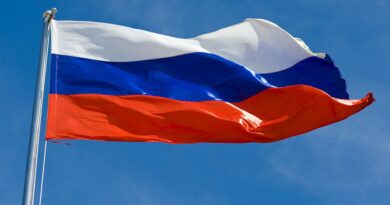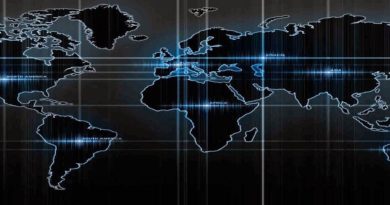Schwarzenegger can change minds in Russia, but not in U.S.

Truth is hard to come by these days, even when you go looking for it.
In the jargon of the moment, we are overrun with misinformation and disinformation — which I like to call stupidity, lies and propaganda, just to keep things simple.
In that vast darkness of confusion and the animosity it purposefully breeds, a hero has emerged, one whose weapon is truth: Arnold Schwarzenegger.
OK, OK, that’s heavy-handed and my screenwriting Oscar isn’t coming anytime soon, but I bet you get the point. It’s hard not to like the guy at this particular moment, because today, for the second time in a little over a year, he’s offered us powerful veracity and authenticity about current events that are otherwise overrun by lies.
If you had better things to do than being on Twitter early Thursday, Schwarzenegger released a nine-minute video aimed at the people of Russia, expressing his respect for them while eviscerating Vladimir Putin’s state-controlled version of the invasion of Ukraine. By noon, it had been viewed nearly 6 million times on Twitter and 400,000 times on Telegram, a platform still available inside Russia.
He details his love of Russia and its people, beginning with meeting champion weightlifter Yuri Petrovich Vlasov in 1961 when he was 14 and hadn’t yet hefted a barbell of note. He talked about his dad being a Nazi, and the guilt and pain it caused the elder Schwarzenegger throughout his life. He lauded protesters and spoke directly to soldiers, telling them the war was illegal, perhaps hoping to inspire a fifth column — a term for groups of internal resisters, open or clandestine. It was good stuff, the kind of plain talk that makes you feel a bit better about the world after watching.
“You see, there are moments like this that are so wrong, and then we have to speak up,” he says, referencing the other video he made in the wake of the Jan. 6 insurrection at the U.S. Capitol — which I’ll get to, because it holds a different and somewhat depressing lesson.
As Brian Levin, head of the Center for the Study of Hate and Extremism at Cal State San Bernardino, puts it, Schwarzenegger “just spews out sincerity.” That’s significant because in what Levin describes as “catalytic moments,” like say, the possible buildup to World War III, people go searching for truth but often settle for what feels best. Schwarzenegger has a credibility and love inside Russia, especially with the older generation that is more inclined to believe state news, that “transcends nationhood” and could “move the needle,” said Levin.
“People left to their own devices will oftentimes yield at times of fear, anger, stress and peer validation to things that intoxicate against the fear, no matter how conflictual or wrong it may be,” says Levin. But this video “will speak throughout Russia.”
The video’s effect could be seen quickly. Russian opposition politician Lubov Sobol tweeted, “Your opinion is very important for Russian people, generations were raised on movies with you,” hours after the video went live.
The former governor’s first attempt at elder statesmanship — his video about the insurrection — was unfortunately less effective in waking up the brainwashed. He used his personal story then too, talking about growing up in a country that lost its own democracy and comparing the Capitol riot to Kristallnacht, the Night of Broken Glass in 1938, a “rampage” against Jewish people by Nazis, as he poignantly described it.
“The broken glass was in the windows of the United States Capitol, but the mob didn’t just shatter the windows of the Capitol. They shattered the ideas we took for granted,” he said of the insurrection, in a video that earned more than 40 million views.
Then he attacked former President Trump for his campaign to overturn the 2020 election and his falsehoods about the election being invalid due to fraud.
Trump “sought a coup by misleading people with lies,” Schwarzenegger said. “[N]o matter what your political affiliation is, I ask you to join me in saying to President-elect Biden, ‘President-elect Biden, we wish you great success as our president. If you succeed, our nation succeeds.”
That didn’t happen. Instead, only a few months later, “Let’s go, Brandon,” a juvenile, profane phrase meant to disparage Biden, had become so pervasive it is on merchandise — and one right-winger even shouted it at Biden when the president called to wish his family a merry Christmas.
Schwarzenegger’s failure to arouse any sense of unity in this country wasn’t surprising to Mia Bloom, an extremism expert and professor of communication and Middle East studies at Georgia State University. Bloom, who I talk to often about the infiltration of QAnon and conspiracy theories into the mainstream, said Schwarzenegger doesn’t have the same credibility with Trump supporters that he has with Russians and “isn’t the person to talk to people who are in the deepest recessions of the conspiracy theories.”
Blame it on “Celebrity Apprentice,” QAnon and Trump, she said, who apparently is more powerful than Putin when it comes to keeping his true believers in line.
Schwarzenegger hosted the spinoff show, on which Trump was a producer, and got into a public tiff with him in 2017 over declining ratings — each blaming the other for the lack of viewers. Trump doesn’t like Schwarzenegger, which means his followers don’t either. Add to that QAnon’s deep fears about Hollywood and the absurd but pervasive belief that its celebrities are involved in child trafficking, and there’s not a whole lot the Terminator can say that’s going to change Trumpers’ minds. They would literally rather believe Putin, or at least Tucker Carlson, his American proxy.
That should give us all pause, because — though our focus is rightly on Ukraine — our own fight to protect democracy is still very much happening, albeit in slow motion.
Mike Madrid, the Republican political pundit who has long fought his party’s slide into extremism, agrees that Schwarzenegger isn’t likely to be a voice of reason to Trump’s followers, but still sees two glimmers of hope when it comes to breaking down the former president’s lies.
For one, for the first time in years America is focused on international issues and has bipartisan (for the most part) consensus that Russia is in the wrong. Madrid says that polling shows “Russia has become the line where Donald Trump is on the wrong side of the base by a wide margin and it does create a problem.” That means there is actually common ground between Democrats and Republicans (though Madrid cautions it will last only until Republicans can find a reason to attack Biden’s response). It’s a rare crack to exploit between Trump and his supporters.
And Schwarzenegger may find some purchase in that divide, even if it’s small. By speaking out, he creates a “permission structure” for dissent — someone whose words may resonate, even if it’s just a little clatter in the back of a staunch Republican mind, reminding Republicans who harbor doubts that “there are other people like me,” said Madrid.
“History is made on the margins,” he said. “You don’t need a lot,” just “enough people to do the right thing.”
Schwarzenegger is one of those doing the right thing — simply because it’s righteous and important, beyond politics. And maybe if he keeps it up, his undeniable sincerity will resonate with enough people inside the United States to make a difference, to grow the crack between Trump and his supporters enough to let some truth slip through.
Even if it’s just a few at a time, democracy needs people to come back to fact and reason — especially with an election on the horizon. That is why “Schwarzenegger is so important,” said Levin, who plans on using the latest video as a teaching tool. “I just want to give him a hug.”


